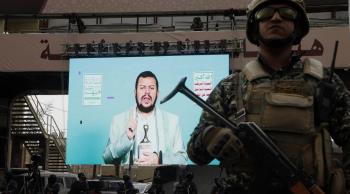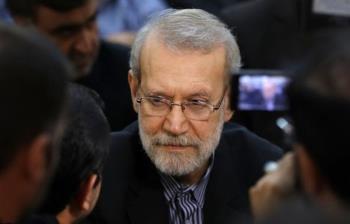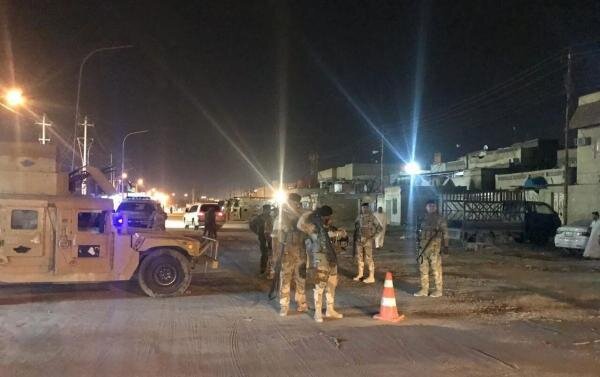Alwaght- In the past weeks, Iraqi Kurdistan region has witnessed one of the most unprecedented clashes between the militants of the Kurdistan Democratic Party (KDP) and local tribal militias, especially those of Haraki tribe. The development not only drew security concerns in the autonomous region, but also set off the alarm bells about tribal divergence, erosion of the local government, and possibility of central government and foreign forces. This report sheds light on the roots of the recent clashes and their possible consequences.
Eruption of crisis
The recent conflict between the Haraki tribe and KDP in the Khabat district in the west of the capital of the region Erbil is not a simple dispute, but a sign of a deep rift in the power structure of the Kurdistan region. Despite its tribal appearance, the crisis is rooted in economic monopolization, land grabbing, and the weakening of an independent judiciary by the ruling Barzani family, which could lead to widespread tribal protests, weakening the KDP’s rule, and even the intervention of foreign actors.
The incident began with the KDP forces’ attempt to arrest a prominent Haraki figure named “Khorshid Haraki”; a figure who had a history of membership in the party but was now embroiled in a civil war with the Gorran tribe.
Peshmerga were deployed to Khabat district on the outskirts of Erbil and attempted to arrest him, but were met with a strong reaction from the tribe. The Haraki tribe mobilized their armed forces, capturing or destroying several Peshmerga armored vehicles and setting up checkpoints on the main Erbil-Dohuk road. The situation quickly spiraled out of control and into a full-scale conflict between the two internal forces.
Historical roots of the differences
- Competition over lands and resources: The disputed region around Khabat district had always been a point of tensions of the local tribes and the Barzani’s. Local sources have reported a dispute over land registration in Garderash region between Haraki and the KDP. This case, which ostensibly has a legal nature, is in fact a reflection of a power struggle among the tribal elites and the ruling party.
The economic corruption and monopoly of the Barzani family in the Kurdistan region, especially in Erbil, is a real and documented issue that has a wide reflection in public opinion, elites and parties.
For decades, the Barzani family has controlled oil resources, customs revenues and import monopoly, real estate and companies, and through this they have achieved legendary wealth, which has been one of the necessary tools for the continuation of the rule of this family over Erbil. For example, local reports indicate that only about $ 400-500 million of the total more than $ 1.4 billion in monthly oil revenue is deposited into the official treasury of the region, and the rest is practically under personal or group control.
In this regard, while Ali Al-Mashkoor, a member of Iraq’s parliamentary oil and gas committee, said last month in an interview with the Kurdish-language Rudaw news network that “more than 200,000 barrels of oil are smuggled through tankers and unofficial ports every month.” MP Suhaila Soltani also admitted that “the profits the Barzanis make from this operation go to their own account and are in no way related to the interests of the Kurdish community.”
For a long time, civil society groups, opposition parties, and some tribes have developed a negative view and strong criticism of this domination. The slogan “oil and gas are the wealth of everyone, not one family” in the economic protests of the people of the region in recent years has reflected public concern and anger at the Barzanis’ monopoly.
- Tribal structure in Kurdistan: The role of tribes in Iraqi Kurdistan is very prominent. Kurdistan has a complex structure of different tribes that play an important role in determining the balance of power. Major tribes include Barzani, Haraki , Surchi, Zebari, Gorani, and Talabani. In addition to social influence, these tribes have military force, financial resources, and even representatives in the political structure. The overlap of party and tribal interests in Kurdistan sometimes leads to convergence and sometimes to conflict. The tribes have still maintained their decision-making, judgment, dispute resolution, and even military equipment structures. The Haraki tribe is one of the most important Kurdish tribes, with a large population and influence in the west of Erbil and the east of Dohuk. The KDP also used these structures to strengthen its authority for a long time, but today these relations have become a serious challenge.
- Record of similar clashes: The confrontation between party forces and the tribes has a history. Earlier, the KDP has clashed with tribes like Goran, Duzi, and even the Patriotic Union of Kurdistan that is affiliated with the Talabani tribe whose bastion is Suleimanyeh. These clashes usually take place over regional competition, resources, and power redistribution.
Security, political, and economic consequences
The recent clashes certainly will leave consequences on the future developments of Kurdistan.
Security: Weakening local government’s authority
The conflict with powerful tribes indicates the erosion of the regional government’s authority. If the government fails to restore security control, public trust in local governance will be severely undermined.
According to some local reports and internal regional analyses, there have been signs of intra-party divisions within the Democrat Party and local discontent.
Some Peshmerga commanders, who themselves are from local tribes, are dissatisfied with the party leadership’s “hasty and coercive decisions.”
In cities such as Shaqlaweh, Soran, and Rawanduz, concerns about military confrontation with traditional tribes are also growing.
Political: KDP infighting
Sources report intra-party disputes and discontent among some Peshmerga commanders with recent decisions. This crisis could pave the way for a realignment of forces in the party’s leadership structure.
In addition, the influence of the political and social climate prone to protests in recent years in the region should not be ignored. While in recent years, disputes between the central government in Baghdad and Erbil over oil sales and budget have disrupted the region’s governance system for paying employees’ salaries and carrying out service and infrastructure projects. Meanwhile, corruption in the local government structure has also contributed to people being deprived of oil sales revenues, resulting in increased living costs and economic pressure on a large segment of society. Opposition parties such as Gorran, the New Generation Movement, and even part of the Patriotic Union of Kurdistan are seeking to capitalize on this discontentment.
In the 1990s, a severe internal conflict occurred between the KDP and the Patriotic Union of Kurdistan, which led to the de facto division of the region into two administrations, one in Erbil and one in Suleimanyeh. Now, some analysts believe that new tribal and social divisions risk further fragmentation of power and even weakening the KDP’s historical position.
Economic: Threats to energy arteries
Kurdistan region has a deep independence on oil revenues. Any threat to the oil exports, especially Erbil-Ceyhan oil pipeline can bear heavy consequences.
Prospects of crisis expansion and continuation
For now relative calm has returned to the region, but contentious atmosphere remains in place. Local sources reported dozens of deaths and injuries. Local government has sent mediation delegations to manage the crisis, but the Haraki a demand compensation and official apology. Leaders of the tribe, Khorshid and Johar Haraki, have warned that if pressures continue, they will block oil pipelines and routes to Turkey.
If there is no peaceful resolution, the crisis could spread to the Harakis’ allies , such as the Sindh and the Dazey. Given the interwoven tribal structure, the possibility of the conflict spreading to other regions of Kurdistan is not unlikely.
Some of these tribes have also expressed unhappiness in recent years with the land grabbing policies, economic monopoly, discrimination in appointments, and land confiscation by the Barzani family’s relatives. If the Barzani family fails to resolve the crisis with the Harkis in an honorable manner or takes repressive measures, the possibility that other tribes will directly or indirectly support the Harakis’ position is high.
The Iraqi army has not officially intervened so far, but it has been put on alert. On the other hand, Turkey is also monitoring the field developments by sending drones to the region. These movements could affect the balance of power in the region and even become an excuse for increasing foreign influence in the region.
The alarm bells are ringing for the traditional and exclusive dominance of the Barzani family over Kurdistan region of Iraq. If the regional government, instead of reconciliation, continues on the path of militarization, expropriation and denial, tribal and political coalitions are highly likely to form against it. Such a situation could lead to a change in the balance of power, increasing the influence of rival parties and even weakening the entire structure of the region.
In summary, we can suggest that the crisis with Haraki is merely the beginning of a larger socio-political quake in the north of the region, unless Erbil manages it properly.



























